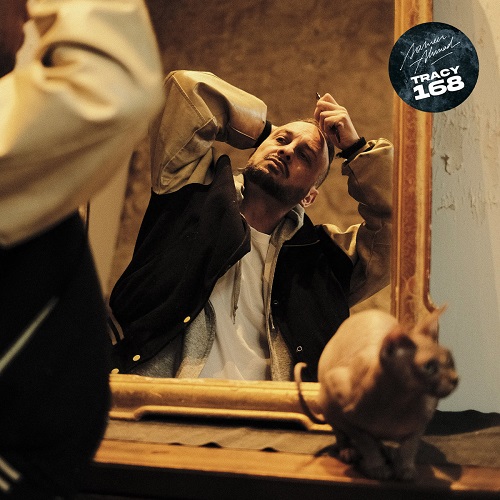Sahmeer Ahmad follows his route. Since the critical success of his Perdants magnifiques (magnificent losers) album in 2014, he's built quite a remarkable set of works. The last iteration of this is a short five-track EP destined to be the first half of his next album, and it confirms everything positive we already thought about the rapper based in Montpellier.

Sahmeer Ahmad hits hard, as soon as with "NMJS" (an acronym for "ne mourez jamais seul": never die alone), a song that is typical of his style. On some aerial beats, and with an ethereal hook delivered by LK de l'Hôtel Moscou, the rapper shares some remembrances from his youth. This is some stream-of-consciousness, where words barely stick together, except for their assonances and double-entendres.
Here, reminiscences keep on piling up, while Sameer Ahmad associates pop culture with academical references…
Les couv's de Radikal remplaçaient Gallimard
Radikal's covers replaced Gallimard
Radikal used to be a French hip-hop magazine, while Editions Gallimard is a leading publisher in classic literature.
… or he mixes idols of his parents' generation with his own.
Mum écoutait Dalida, j'écoutais Dany Dan
Mum listened to Dalida, I listened to Dany Dan
Dalida was a chanson singer, Dany Dan is a French rapper.
Sameer Ahmad juggles with words. This is obvious, as soon as the "Chibani" song and its first ryhmes. But he does it organically. He doesn't bend the language artificially, as often with those pretending to be poets. And he is a true rapper, his art is all about punchlines, like that one on "Santeria":
Premier sur l'indé comme Haïti
I am the first indie, like Haiti
He claims he comes first among the independent rappers, like Haiti, the first French colony to gain its independence.
A while ago, Sameer Ahmad identified the core principles that make a record successful: disregard norms set by others; never deliver what you think they expect; just do your thing, just talk about yourself. That way, you can never be wrong.
As a matter of fact, what the EP displays is his own universe and experience. This is a cultural world made of rap music, movies, books, and TV programs. And it is so large that anyone can decrypt his words, especially the rap amateurs.
C'est thug, c'est harmonique
Et ça du cerveau jusqu'à l'os
It's thuggish, it's harmonic
And the brain is as deep as the bone
Of course, this refers to Bone Thugs-N-Harmony.
Je pense que le monde de demain c'est loin
I think that tomorrow's world is far away
That one mixes two famous songs from French rap legends NTM and IAM: "Le monde de demain" ("Tomorrow's world"), and "Demain c'est loin" ("Tomorrow is far away").
Some other references can look abstruse. Until, while discovering some of them, the listener will eventually understand, and retrospectively reach a moment of ravishment.
Sameer Ahmad also shares his feelings and his sentiments, like on "Mars", the great melancholic song on the EP. And on "DMX", he testifies about his daily life as a musician:
En classe éco, un train de vie d'artiste
In economy class, with my artist lifestyle
In French, the word "lifestyle" translates into "train de vie" (train of life), hence Ahmad's allusion to the economy class.
The rapper of Iraqi descent also talks about his racialized identity on "Santeria", or about him being middle-aged, on "Chibani" ("old", in Maghrebi Arabic and French slang).
Sameer Ahmad was a teacher, in real life. However, even if he is a wordsmith, he knows that in hip-hop, music matters over lyrics. As a result, he leverages the right beats: ageless ones, with no specific style. His only goal is that they sound good, such as his words, so that they strengthen his erratic evocations. And they are so satisfactory that our only wish, after Tracy 168, is to discover the second half of the album.
